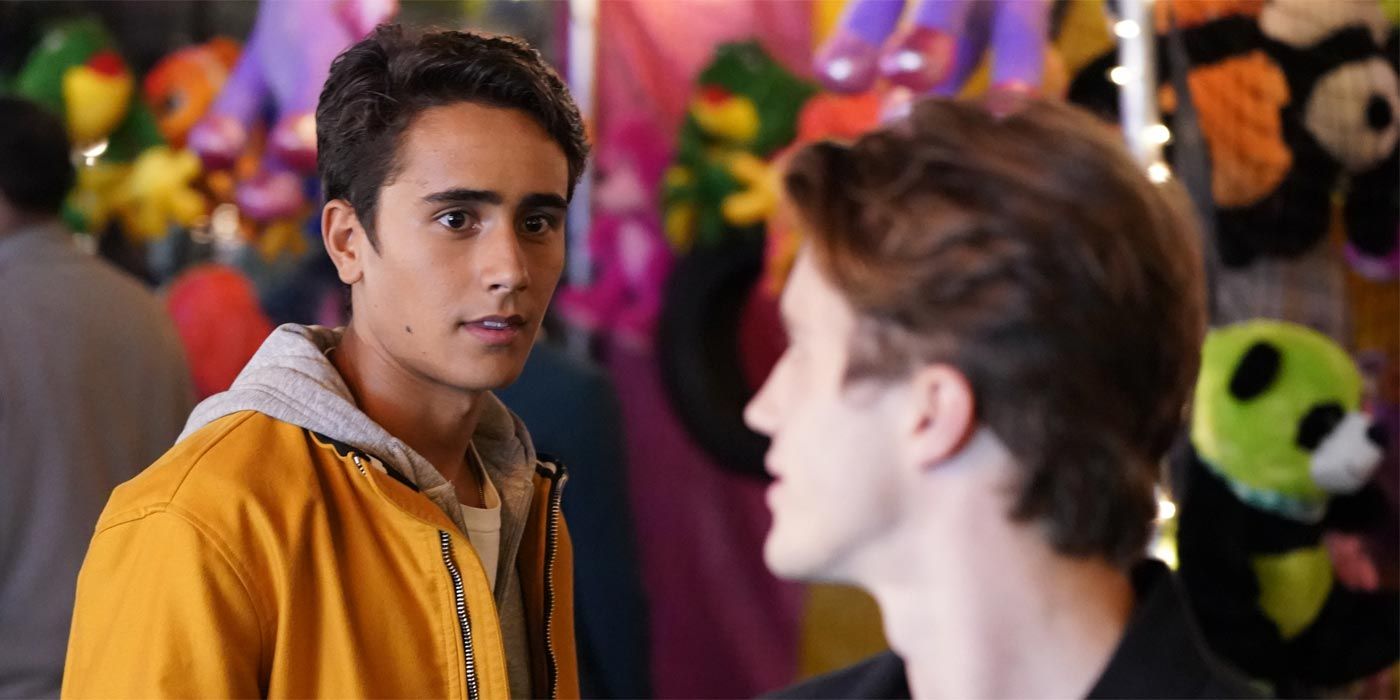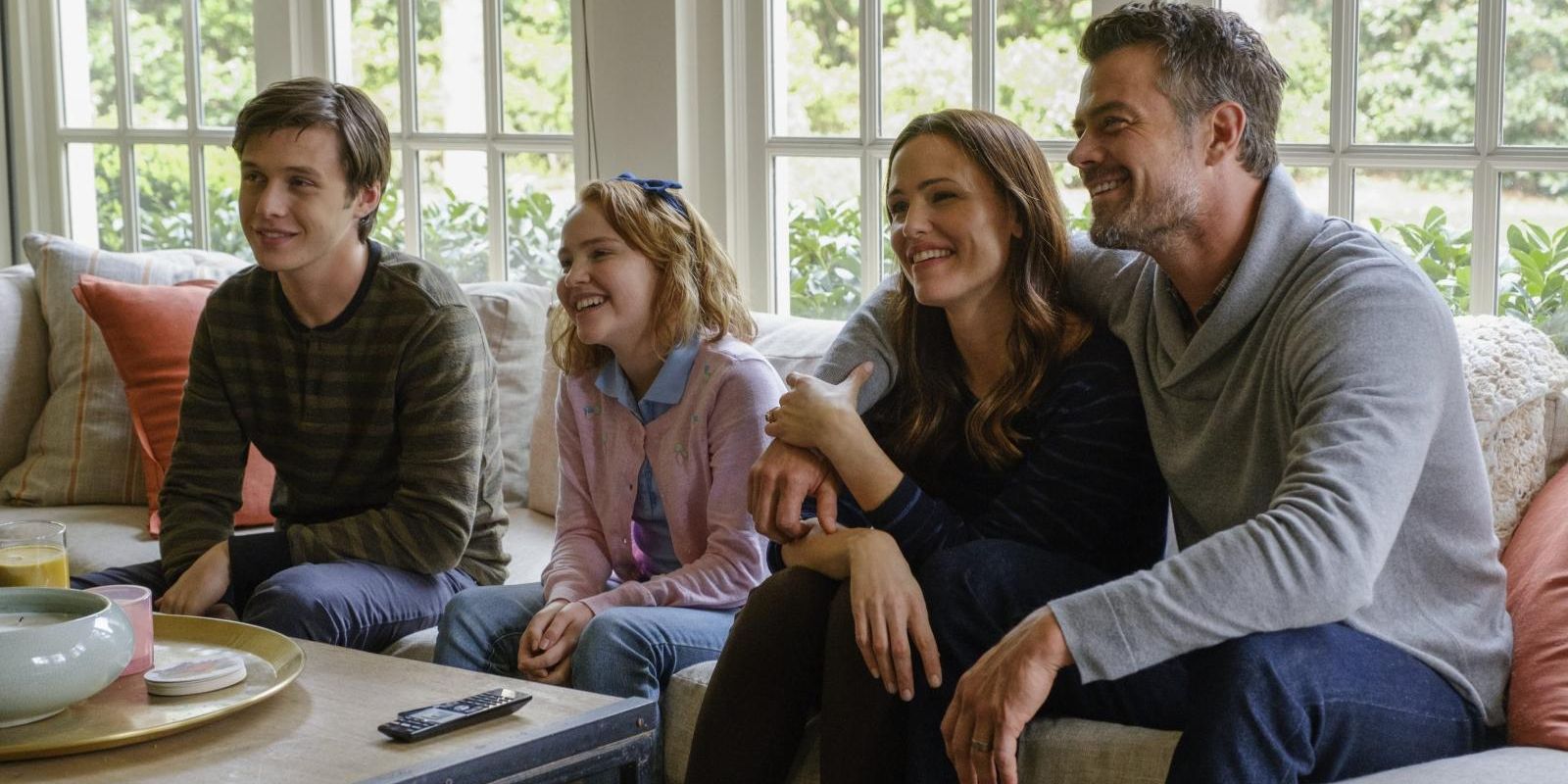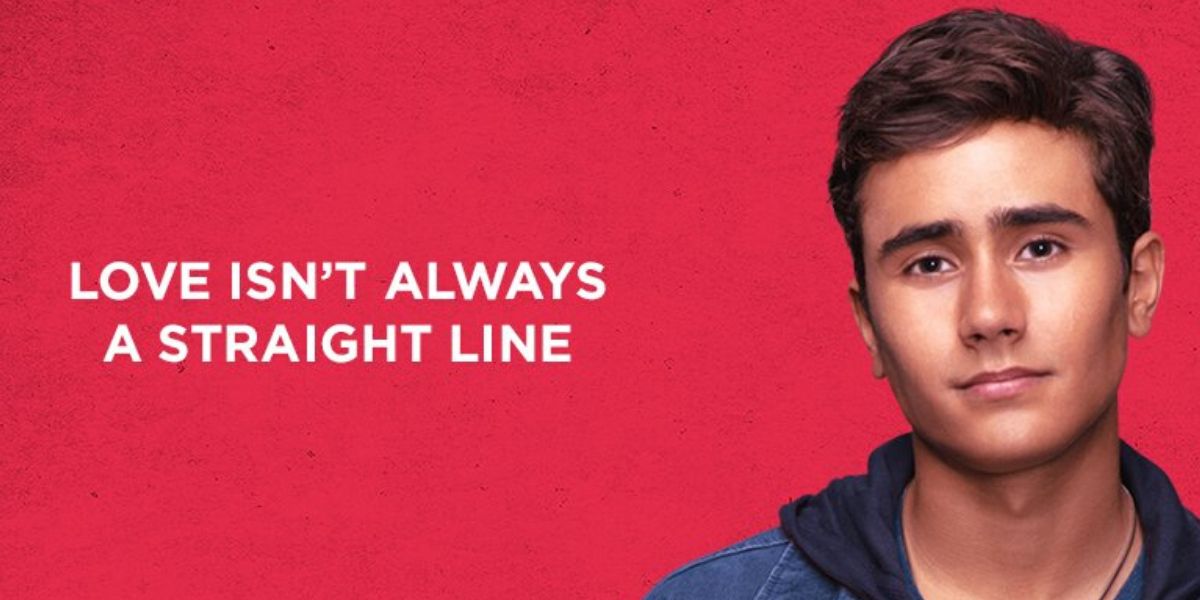WARNING! This article contains spoilers for Love, Victor Season One, now streaming on Hulu.
The 2018 young adult film Love, Simon was monumental for LGBTQ representation in mainstream media and should be celebrated for its achievement. The film is based on the novel Simon vs the Homo Sapiens Agenda by Becky Albertalli, a clinical psychologist turned author. The film made dramatic, yet not unwelcomed, plot changes in its adaptation, all while maintaining the tone and spirit of the source. One of the most important aspects of the film's representation is the positive, supportive environment Simon Spier finds himself in, since there is a troubling trend in LGBTQ films where the characters spend a majority of their story suffering in some form.
Love, Simon was a refreshing diversion from the disturbing trend; however, the film comes off sickly sweet too often. Simon had the picture perfect home life, which allowed him to come out safely with a support system who embraced his identity. Unfortunately, this is not necessarily the experience of many LGBTQ youth. It is not necessarily a flaw of the film to present an idealistic situation, but it does leave an opportunity for the spin-off series Love, Victor to expand on the experiences of LGBTQ youth, and this is where the show thrives.
Love, Victor follows Victor Salazar as he comes to terms with his homosexuality while struggling with dramatic changes at home. His mother, Isabel, has an affair with his father, Armando's, boss, resulting in a physical altercation and Armando's termination. The parents decide to move Victor, their daughter Pilar and youngest son Adrian to a suburb of Atlanta to start fresh. Victor and Pilar attend Creekwood High School, where Simon Spier is a gay icon, but the culture of homophobia and bullying is still alive.
Victor reaches out, initially in anger, to Simon via Instagram, and Simon does his best to support Victor in his journey to accept who he is, as well as providing advice on navigating the more sensitive areas of his life. Actor Nick Robinson reprises his role as Simon, as well as snagging an executive producer credit on the series.
Episode 8, "Boy's Trip," sees Victor travel to New York City to meet Simon, his boyfriend Bram, again played by Keiynan Lonsdale, and their friends in person. In the episode, Victor learns that Simon's advice had been reviewed by his boyfriend Bram, and his queer roommates. In a touching moment, Simon explains that one of the best parts of being LGBTQ is the community, sharing with Victor that leaning on people with similar fears and experiences is an asset and safety net. For the first time, Victor does not feel alone nor does he feel so desperate about who he is, but not everything is clear skies for Victor.
At his birthday party, his grandfather and father ask that his gay friends do not engage in an innocent kiss while in their home. It is blatant, hurtful homophobia that never existed in Simon's house. Simon did experience microaggressions, but they were always unintentional and misguided, not overtly homophobic like this. Even after Armando apologizes to Victor for his grandfather's behavior, he still mentions that he hopes Victor doesn't turn out to be gay like his friends. It is a gut punch moment that is sadly a shared experience among a huge percentage of LGBTQ youths, and it was not seen in Love, Simon.
One of the reassuring factors of Love, Simon is that Simon is well aware of his queerness. The film does not tackle the complicated, painful issue of self-discovery that comes with exploring and accepting one's sexual identity, but this is not a criticism of the film, since it is refreshing to have a queer character so sure about their identity. However, in building the television show, there is room to flesh out Victor's emotional journey of self discovery and leave room for future seasons to explore different areas of the gay experience. Part of Victor's journey in accepting his own gay identity is that he grew up in a different environment than Simon.
Simon's anxieties were rooted in his fear that others would struggle to accept the version of himself that he always knew he was. When Simon came out to his family, he assured them that he was still the same person he was before he came out. His fears were primarily based on the anticipated reactions of others. Even his dramatic falling out with his friends is not rooted in his queerness, but in his meddling with their love lives.
Victor too fears the reactions of others, but he also has an internalized self hatred that is unfortunately common for some memebers of the LGBTQ community. He tells Simon that he wishes he was "normal," and that he hates this part of himself in a truly heartbreaking confession of pain and fear.
Love, Simon is iconic for teen and queer cinema, and Love, Victor is a smart companion piece to the original film, as it really succeeds as a contrast and critique of the soft, sweet edges of the original movie. The season ends on Victor coming out to his parents, and he can finally exhales, calling back to the film's iconic, "you can exhale now" line, melding the two pieces together and creating a wider exploration of queer experiences.
Love, Victor is now streaming on Hulu and stars Michael Cimino, Rachel Hilson, Anthony Turpel, Bebe Wood, James Martinez, Ana Ortiz and Nick Robinson.



